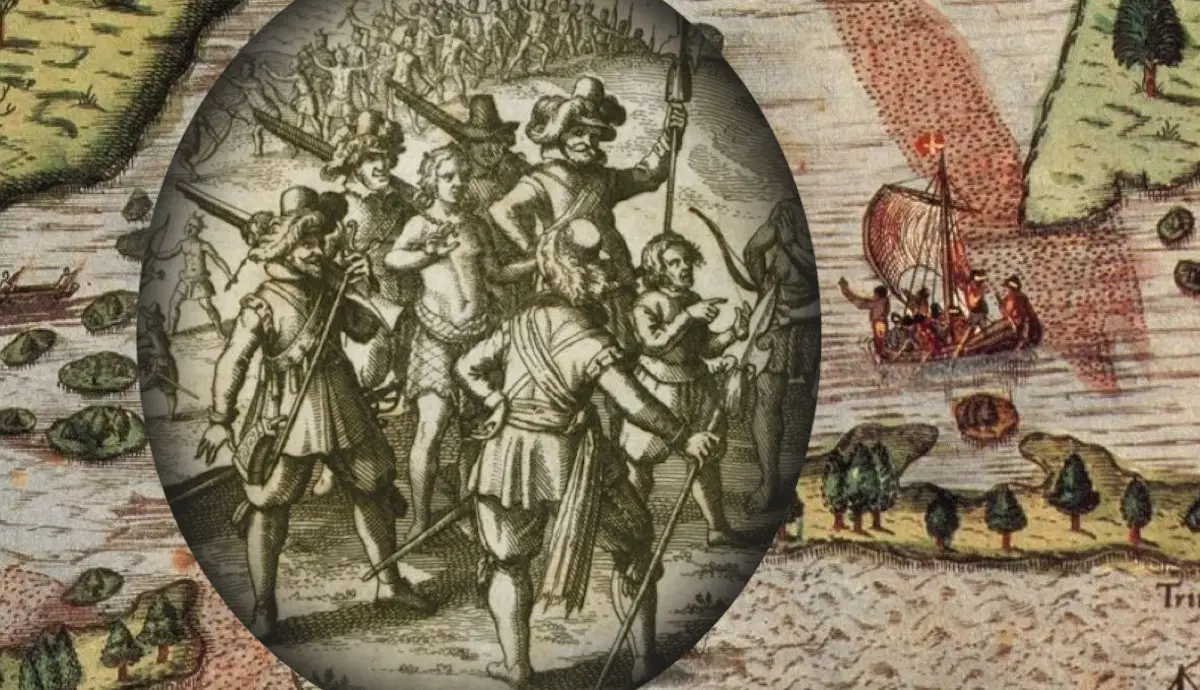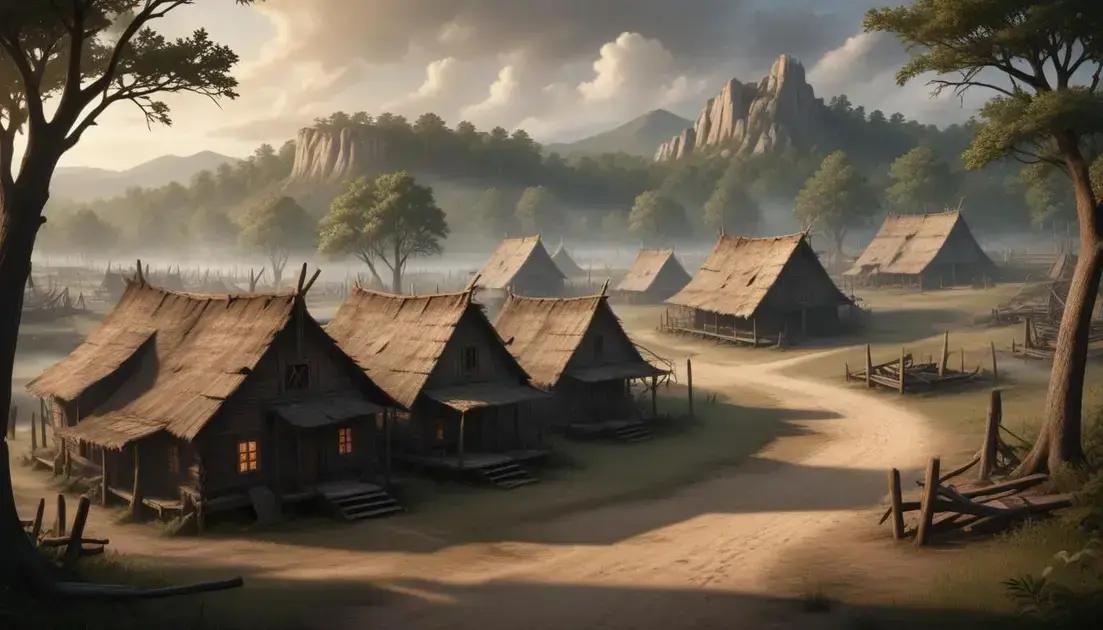
The Mystery of the Lost Colony of Roanoke
The Lost Colony of Roanoke stands as one of the most enduring and captivating mysteries in American history. Established in 1587 on Roanoke Island, in what is now Dare County, North Carolina, it represented the first English attempt at a permanent settlement within the territory that would become the United States. Its complete and inexplicable disappearance has fueled centuries of speculation, countless theories, and ongoing research, yet the definitive answer remains elusive. This in-depth exploration delves into the historical context, the events surrounding the colony’s establishment and vanishing, the prevalent theories attempting to explain its fate, and the lasting impact of this enigmatic chapter in American history.
The Seeds of Settlement: Sir Walter Raleigh and the Elizabethan Era
The story of Roanoke begins with the ambition and patronage of Sir Walter Raleigh, a prominent figure in the court of Queen Elizabeth I. Raleigh, driven by a combination of nationalistic pride, the promise of untold riches, and the desire to expand England’s influence globally, secured a royal charter granting him the right to colonize parts of North America. This marked a pivotal moment, not only in the history of England’s colonial ambitions but also in the shaping of the future United States.
Raleigh’s initial expeditions, though facing hardship and setbacks, laid the groundwork for the Roanoke venture. The expeditions faced challenges including navigating unfamiliar waters, encountering hostile indigenous populations, and managing the difficulties of establishing a sustainable settlement in a completely foreign environment. These early voyages provided invaluable, albeit often hard-won, knowledge about the terrain, resources, and indigenous inhabitants of the region, shaping the strategies for subsequent expeditions. The early struggles highlighted the inherent risks and complexities of establishing a successful colony in such a challenging new world.
The selection of Roanoke Island as the site for the colony was a strategic decision based on factors such as its proximity to the sea, its seemingly fertile land, and its potential for defense. Yet, this strategic location, while offering advantages, would also play a significant role in the colony’s eventual fate, with its isolation both a benefit and a potential vulnerability.
The 1587 Expedition and the Birth of Virginia Dare:
The pivotal expedition of 1587, led by Governor John White, marked a critical turning point in the Roanoke narrative. This expedition included White’s daughter, Eleanor Dare, her husband Ananias Dare, and a carefully selected group of colonists representing a diverse cross-section of English society. This group carried the hopes and aspirations of England for a successful colony that would serve as a strategic foothold in the New World, generating resources, asserting power, and expanding England’s dominion across the Atlantic.
The arrival of the colonists on Roanoke Island in August 1587 is etched in history by the birth of Virginia Dare, the first English child born in the New World. This landmark event further intensified the sense of hope and anticipation surrounding the colony’s future. It created a powerful human connection to the narrative, transforming the abstract concept of colonization into a story with deeply human elements. Virginia Dare’s birth became a symbol of both hope and fragility—a testament to human resilience in the face of unprecedented challenges and a stark reminder of the colony’s ultimate fate.
However, even before Governor White’s departure for England to secure vital supplies, the colony faced numerous challenges that foreshadowed its uncertain future. These included procuring sufficient food, conflict with indigenous inhabitants, disease, and the relentless difficulties of adapting to a completely foreign environment. These difficulties, combined with the uncertain political climate in England, would soon bring about the colony’s tragic end.
The Voyage to England and the Delay: The Spanish Armada and its Impact:
John White’s departure for England, intended to be a relatively short trip to secure essential supplies, was drastically prolonged by unforeseen circumstances. England found itself embroiled in a major naval conflict with Spain, with the imminent threat of the Spanish Armada looming. White’s journey back to Roanoke was delayed for three years. This delay, a consequence of the geopolitical turmoil in Europe, proved disastrous for the colony. The three-year absence completely altered the context for the colony’s survival, leaving the settlers increasingly vulnerable to the many risks and challenges inherent in their precarious situation.
The Return to Roanoke: A Deserted Colony and an Enigmatic Message:
White’s return to Roanoke in August 1590 was met with the devastating discovery that the colony had vanished. Homes lay abandoned, with no signs of violence or struggle. The absence of any evidence of conflict is among the most perplexing aspects of this mystery. The only clue left behind was the word “Croatoan” carved into a post, hinting that the colonists may have sought refuge on Croatoan Island (now Hatteras Island).
The mystery surrounding the carved word adds another layer to the enigma. Was it a planned relocation or a desperate plea for help? The ambiguity of this message highlights the desperate circumstances and the lack of clear communication between the colonists and their benefactor, emphasizing the sheer isolation and vulnerability of the Roanoke settlers. The search for evidence of the colonists on Croatoan Island proved fruitless, leading to even more questions.
Competing Theories: A Tapestry of Explanations:
The disappearance of the Roanoke colony has generated an extensive array of theories, each attempting to explain this enduring enigma. These theories fall into several broad categories:
Integration with Indigenous Populations: This theory posits that the colonists were assimilated into local Native American tribes, either through intermarriage, cultural adaptation, or forced integration. Evidence of interaction between the colonists and the indigenous population of the region supports this theory, suggesting a potential for such integration.
Disease and Starvation: The harsh realities of colonial life, including the challenges of farming, access to resources, and exposure to new diseases, led to numerous deaths among the colonists. Disease, especially those that were new to the colonists, could have decimated the colony’s population, leading to abandonment or a gradual decline. The impact of climate change and resource scarcity should also not be overlooked in this context.
Violence and Conflict: Conflict with indigenous tribes or even internal strife within the colony could have resulted in the colonists’ demise. While there is no definitive evidence of widespread violence, the possibility of conflict or violent attacks should not be disregarded entirely, although there is also a significant lack of evidence suggesting this as the sole explanation.
Environmental Factors: The ecological challenges of the Roanoke environment, including unpredictable weather patterns, limited resources, and the difficulty of establishing sustainable agriculture, could have played a crucial role in the colony’s failure. The harsh realities of life in a new, unfamiliar world could have overwhelmed the colonists.
Other theories: Other, less substantiated theories include: a massacre by a rival European power, an attack from a hostile indigenous nation, or even assimilation into other, less-known indigenous groups beyond the immediate vicinity. These theories, while less prominent, remain intriguing possibilities.
The Ongoing Search: Archaeological Investigations and Modern Techniques:
The quest to unravel the mystery of Roanoke continues to this day. Archaeological investigations, employing increasingly sophisticated techniques, have yielded some insights but have not definitively solved the mystery. These efforts range from careful excavation and analysis of artifacts found at the site to the use of ground-penetrating radar and DNA analysis to pinpoint potential settlements and trace the genetic lineage of the lost colonists.
The Legacy of Roanoke: A Symbol of Colonial Ambitions and Uncertainties:
Beyond the enduring mystery, Roanoke’s legacy extends far beyond its enigmatic disappearance. It serves as a stark reminder of the challenges, risks, and uncertainties inherent in colonial expansion and the human cost of exploration and settlement. The story of Roanoke underscores the importance of understanding the complex interactions between colonizers and indigenous populations, as well as the importance of sustainable and responsible approaches to exploration. The loss of the Roanoke colony was not just a geographical loss; it was a significant human loss reflecting the uncertainties of a brave new frontier.
Roanoke continues to hold a place in popular culture, inspiring countless works of fiction, film, and even musical compositions. The mystery of Roanoke stands as a testament to humanity’s enduring curiosity, resilience, and capacity for both great ambition and devastating failure. It highlights the importance of historical research, the complexity of human relationships, and the enduring power of unsolved mysteries to capture our imaginations. The legacy of Roanoke is not simply a historical enigma; it’s a window into the human experience, revealing both our aspirations and our vulnerabilities. The enduring mystery of Roanoke continues to serve as a reminder of the need for careful, ethical, and sustainable approaches to exploring the unknown and building new civilizations. The unanswered questions of Roanoke continue to inspire research, exploration, and a deeper understanding of the early colonial experience.
The site at Fort Raleigh National Historic Site continues to attract visitors and researchers alike, further solidifying Roanoke’s enduring legacy in the tapestry of American history. The continuous effort to uncover the truth behind this mystery is a tribute to the power of history and our ongoing quest for knowledge and understanding. The mystery remains, but the search for answers continues, ensuring that the legend of Roanoke will live on for generations to come.


